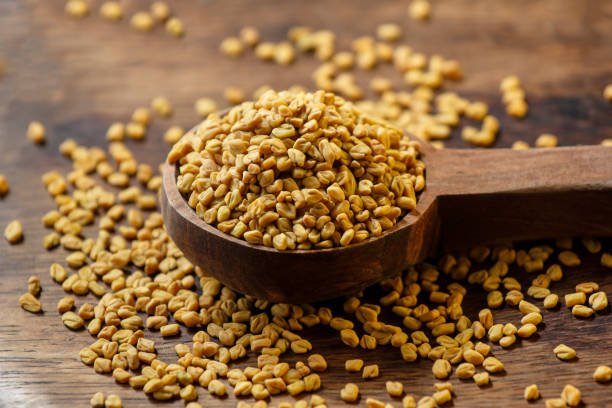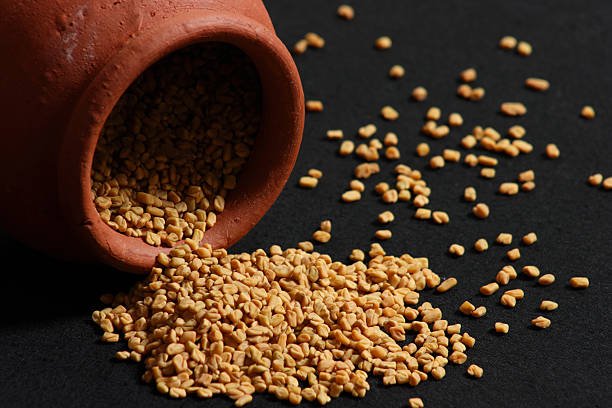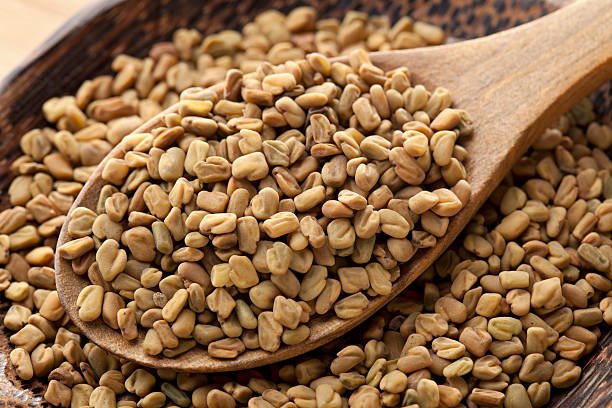Fenugreek Seeds (Trigonella foenum-graecum)
Fenugreek seeds are small, golden-yellow, angular seeds with a strong, distinctive aroma. They are widely used in cooking, traditional medicine, and the nutraceutical industry for their rich nutritional profile and therapeutic properties.
Physical Properties
Color: Yellow to light brown
Shape: Angular, rhomboid-shaped
Odor: Strong, maple syrup-like aroma
Taste: Bitter, earthy flavor
Moisture Content: ≤ 8%
Purity: ≥ 99%
Foreign Matter: ≤ 0.5%
Bulk Density: ~0.75 g/cm³
Chemical Properties
Saponins: ~4.5%–6%
Alkaloids (mainly trigonelline): Present
Flavonoids & Polyphenols: Present
Essential Oil Content: 0.01%–0.05%
Mucilage Content: ~20–25%
Fixed Oil: ~5%–10%
Nutritional Information (per 100g)
Calories: ~323 kcal
Protein: ~23g
Fat: ~6g
Carbohydrates: ~58g
Fiber: ~25g
Iron:33.5 mg
Calcium: ~176 mg
Magnesium, Zinc, Phosphorus, Manganese
Vitamins: B1, B2, B3, C, A
Quality Standards
“Compliant with local and European standards according to food safety regulations.”
100% natural, non-GMO, and free from additives
Complies with ISO and Codex standards for food safety
Free from pesticide residues
Uniform color and size
Cleaned and dried under hygienic conditions
Microbiological Standards
Total Plate Count: <10⁴ CFU/g
Yeasts & Molds: <10² CFU/g
E. coli: Absent
Salmonella: Absent in 25g
Aflatoxins: Within safe food limits
Packaging & Storage
As per the customer’s request, polypropylene bags and cartons.”
Storage Conditions: Store in a cool, dry, well-ventilated place, away from moisture and sunlight
Shelf Life:
Up to 24 months under proper storage
Origin :Egypt
APPLICATION
Used in Indian, Middle Eastern, and North African cuisines, spice blends (like curry), and pickles
Supports digestion, blood sugar regulation, lactation in nursing mothers, and cholesterol control
Used in hair and skin care formulations
Incorporated in dietary supplements and herbal teas
Due to nutritional and digestive benefits
Contact information:





